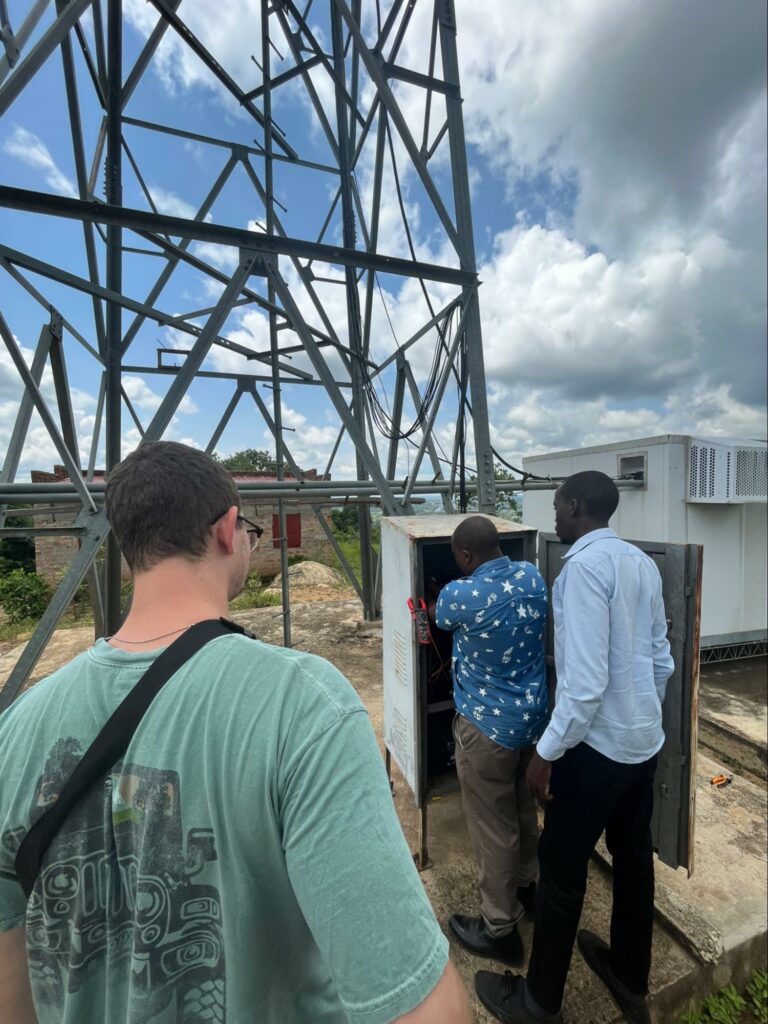Access to reliable communication networks and internet connectivity has become a vital aspect of development, which is why BOSCO-Uganda continues to expand its technology infrastructure and improve existing hardware and software. With this being said, two batteries atop Opit Tower have been replaced with more reliable and stronger batteries to increase the stability of signals and WiFi connections in areas that the tower supports.
The Opit Tower, serving as a lifeline for communities such as Lira, Gulu, and Paimol, will benefit from these batteries as they aim to bolster signal strength, extend WiFi coverage, and empower residents with improved connectivity for enhanced educational, economic, and social opportunities.
While the tower provides essential signals and WiFi connectivity, enabling communities to connect with the world beyond their immediate surroundings, the aging batteries at the tower have posed challenges, resulting in inconsistent signal quality and limited WiFi coverage. Recognizing the urgent need to address this issue an effort has been made to replace the batteries, thereby upgrading the tower’s infrastructure.
While the primary objectives of this replacement effort include improving signal strength and expanding coverage to previously underserved rural areas, these efforts also help to enable new economic opportunities by ensuring a stable power supply to the tower and reducing interruptions in signal transmission.
This can aid entrepreneurs and other businesses to better leverage online platforms, e-commerce, and digital marketing to reach larger markets, leading to increased trade and economic growth. In addition, it will also support education by strengthening the internet connectivity in the regions it serves, helping to facilitate learning for students in remote areas. With improved signals, teachers and students can access e-learning platforms, online libraries, and interactive educational materials, fostering a culture of lifelong learning.
The Opit Tower battery replacement project signifies a significant step toward empowering rural communities in Northern Uganda with improved connectivity. By addressing the challenges of unreliable signals and limited WiFi coverage, it can better enable communities to gain access to stronger, more impactful coverage and enable greater development.
Article by Greg Gehring
Photos



